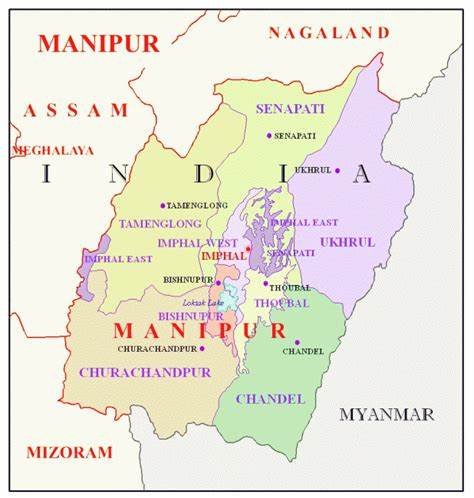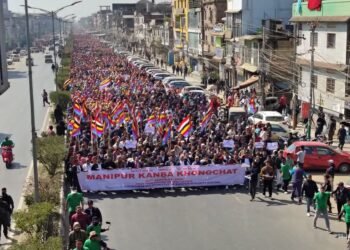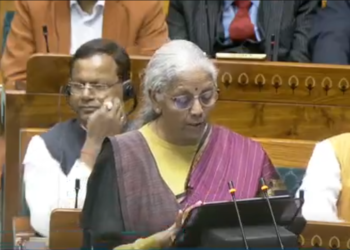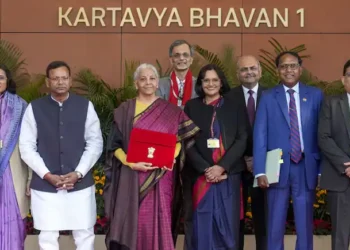BY PC Bureau
July 18, 2025–As the Kuki-Zo community explores avenues for peace through outreach to Naga leadership in Nagaland, fault lines between the two dominant tribal groups in Manipur continue to deepen.
The Foothills Naga Co-ordination Committee (FNCC) has announced an indefinite bandh beginning midnight, July 18, 2025, aimed at halting the movement of Kuki groups through Naga-inhabited foothill regions. The decision, made public in a letter dated July 17 and signed by FNCC Secretary B. Robin Kabui, reflects rising anxieties over land, identity, and environmental degradation.
The bandh is in response to three key concerns:
The planned construction of the German and Tiger roads through Naga ancestral lands without consultation,
The presence of Kuki militant camps under the Suspension of Operations (SoO) agreement,
And rampant poppy cultivation, which the FNCC blames for fueling addiction and ecological damage.
The letter appealed for solidarity, stating:
“We remain hopeful that through collective vigilance and action, we can chart a path forward that ensures peace, respect, and justice for our people.”
READ: Rahul vs Sarma Hits New Low; Assam Police May Summon LoP, Kharge
This move coincided with the postponement of the Kuki-Zo Council’s (KZC) much-anticipated Mega Public Consultative Meeting, originally scheduled for July 19 at the Tuibong Peace Ground. A press release issued earlier today cited “adverse feedback” and “lack of coordination” with Kuki-Zo civil society organisations (CSOs), as well as an “unhealthy atmosphere,” as reasons for the delay.
To enforce an indefinite band on the movement Kukis within the foothill region of Naga-inhabited areas with effect from the midnight of 18th July 2025.#liangmaipost #Manipur #Naga #kuki #liangmai #zeliangrong pic.twitter.com/1zwpyC8QSr
— 𝐋𝐈𝐀𝐍𝐆𝐌𝐀𝐈 𝐏⭕𝐒𝐓 (@LIANGMAIPOST) July 18, 2025
The meeting was meant to deliberate on a Ministry of Home Affairs (MHA) proposal to cease hostilities between the Meitei and Kuki-Zo communities. However, distrust has mounted among the Kuki-Zo populace, with many suspecting the proposal might unfairly implicate them in the May 3, 2023, ethnic violence.
A prominent community leader from Churachandpur voiced the prevailing sentiment:
“When we are the victims, merely protecting our lives and honor, why should we sign an agreement that makes us look like perpetrators? This is totally unacceptable.”
The lack of engagement with CSOs and vague wording in the MHA’s initiative have deepened misgivings, prompting the KZC to defer its decision—even as the Centre continues to pitch it as a pathway to peace.
Yet amid rising tension, a gesture of reconciliation emerged. The Thadou Tribe Council (TTC) today issued a rare appeal to the United Naga Council (UNC), urging it to intervene with the Joint Tribes Council (JTC)—comprising the Inpui, Liangmei, Rongmei, and Zemei tribes—to prevent obstruction of an alternative road project connecting Churachandpur (Songpi) to Kangpokpi (Kanggui).
In a detailed memorandum, the TTC clarified that the proposed route entirely avoids JTC-inhabited areas, instead passing through Kuki-Chin villages like Chiru Khunou and Dolang Khunou, to prevent conflict. The appeal followed a July 15 memo by the JTC accusing the Kukis of encroachment.
“The proposed bypass takes a much longer route to deliberately avoid all JTC areas and passes only through the lands of our blood brothers, the Chirus,” the TTC letter said, expressing hope for dialogue and unity.
TTC President Y.T. Haokip called for fraternal understanding, invoking tribal and Christian values:
“We appeal… in the name of Naga as well as Christianity, over blood brothers’ dealings, as per custom and tradition… to give peace a chance—to live and let live as fellow Tribals and fellow Christians.”
The TTC also thanked the UNC and Naga public for past solidarity, urging both to resist “divisive narratives” and recommit to a shared vision of peace.
READ: Kuki-Zo Council Postpones Mega Meet Amid Skepticism, Division
As the FNCC’s bandh grips the foothills and the Tuibong Peace Ground remains empty, Manipur finds itself at a crossroads. The Kuki-Zo Council’s postponement reveals fragile trust in official peace overtures, even as grassroots tribal bodies attempt to bridge historical divides. The days ahead may determine whether confrontation continues—or space opens for dialogue and reconciliation.













